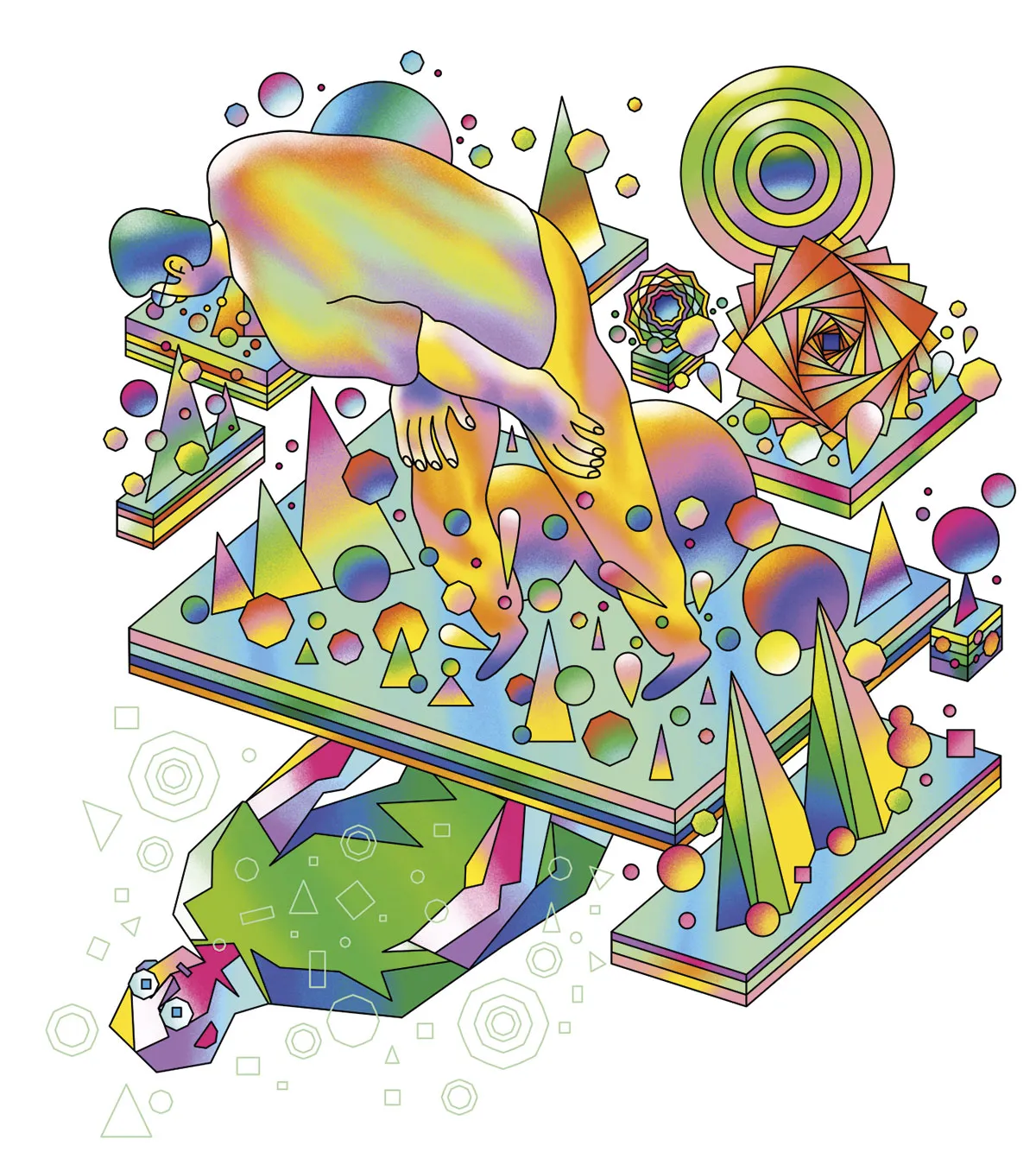Last month, I spent my valuable column inches predicting what we would be obsessed with over the next 12 months. Already I’m proving to be a terrible fortune teller, because the one thing that I should have known was coming was so obviously on the cards that I ignored all the signs. How could I not foresee the metaverse?
You may have heard this word recently, perhaps for the first time. The big tech companies are propelling it forward with vigorous press releases and starry-eyed hot takes bordering on the messianic.
Briefly, a metaverse is a virtual reality that exists in a layer above the physical, and yet reflects and replicates the things that we need for society to function: economies, hierarchies, judicial systems, and so on. In other words, it’s what we do now, only online with avatars, VR headsets and augmented reality.
Perhaps the reason I didn’t see it coming is very simple. This isn’t my first metaverse. It’s not even my third. A metaverse comes around every time there’s a new way to interact with technology. This is not a problemper se. It simply demonstrates that we have short-term memory issues.
Each iteration of the ‘metaverse’ does get closer to the original (dystopian) definition first coined by author Neal Stephenson in his magnificent 1992 novel Snow Crash.
The people who populated 1990s online community LambdaMOO pushed the boundaries of how to deal with unacceptable social behaviour in its anarchic text-based playground; the architects who landscaped ActiveWorlds’ 3D reality found the limits of server space and acceptable behaviour; the capitalists who descended on virtual worldSecond Lifein the 2000s forced a reckoning with tax regimes and, again, unacceptable behaviour.
People will always misbehave! Every metaverse has come to this ‘problem’ with wide eyes and optimism, thinking it has solved human behaviour, but we have a way of unravelling things.

But none of these examples I’ve listed are metaverses in the true sense because they’re all owned by single companies who fiercely guard their intellectual property, creating walled gardens of the future. They are also not untethered from physical space, as they have to operate within the bounds of the jurisdictions their customers physically reside in.
The metaverses Facebook and Microsoft are promising will do the same. What’s more interesting is what edges they will find themselves pushing up against; the things that we will reject because we don’t realise what is important to us until it’s not there.
A VR headset and a handshake with an avatar operated by a single mother from Illinois inside a 3D representation of a city street imagined by an anarchist from Angola is neat and all, but as we have seen before, that’s only one way the tech will be used. The rest may not be as acceptable.
Metaverses are exciting. They let us think we can create in remarkable, unexpected ways. But they are technological sandboxes with boundaries defined by the limitations of what we use to access them. As things get even more meta, get excited about the possibilities. Just don’t put your faith in the things being promised today. The metaverse won’t be here anytime soon.
- This article first appeared inissue 373ofBBC Science Focus Magazine–find out how to subscribe here
Read more from Aleks Krotoski:
